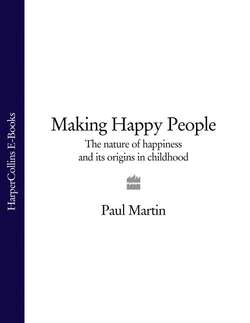Читать книгу Making Happy People: The nature of happiness and its origins in childhood - Paul Martin - Страница 33
14. Playfulness
ОглавлениеChildren, like young animals of many other species, spend much of their time playing. Indeed, play behaviour is the quintessential characteristic of childhood. Play might seem pointless, but in fact it has important long-term benefits. Through play, children acquire valuable experience and develop their mental and physical capabilities. We will take a closer look at it in chapter 11.
Adults play too, albeit often in more structured ways. Sports and games are common forms of adult play, and common sources of happiness. So, too, are social leisure activities like making music, voluntary work and going to the pub. What they have in common is their ability to deliver all three basic elements of happiness – pleasure, lack of displeasure and satisfaction.
A less obvious feature of play is its delicate dependence on individual well-being. Play is a highly sensitive barometer of mental and physical health. A child who is feeling anxious, sad, hungry or ill will probably not be playful. Play behaviour is one of the first things to go when we are feeling less than well. As such, it can provide a valuable insight into the current state of individuals and organisations. The least creative and productive sections of an organisation are often the least playful.
A personal characteristic that is closely related to playfulness is openness to new experiences. By and large, happy people have a more welcoming attitude towards new experiences and cope better with change. Openness to new experiences and a willingness to change have become increasingly important in a complex world where the demands are evolving at an accelerating pace.
